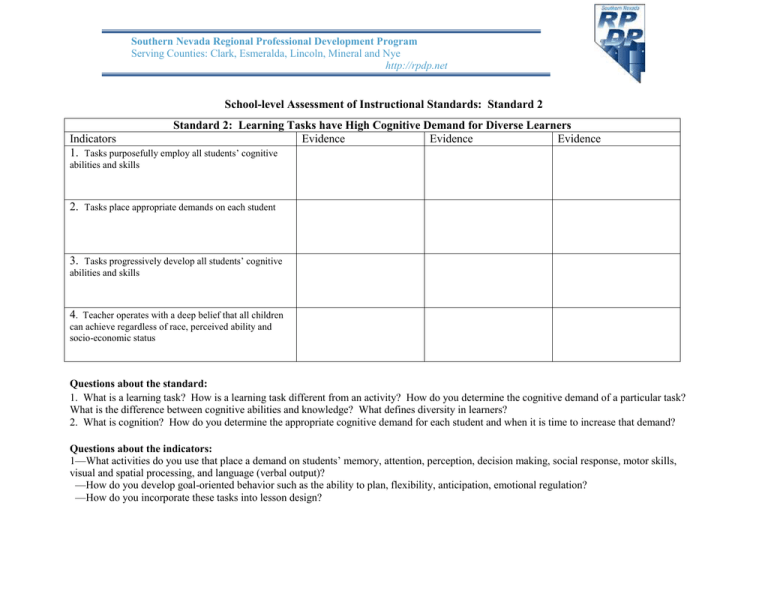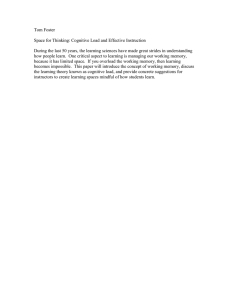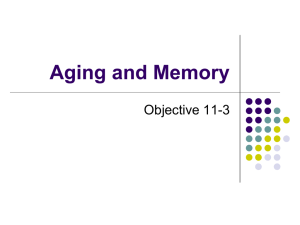School-level Assessment of Instructional Standards: Standard 2
advertisement

Southern Nevada Regional Professional Development Program Serving Counties: Clark, Esmeralda, Lincoln, Mineral and Nye http://rpdp.net School-level Assessment of Instructional Standards: Standard 2 Standard 2: Learning Tasks have High Cognitive Demand for Diverse Learners Indicators Evidence Evidence Evidence 1. Tasks purposefully employ all students’ cognitive abilities and skills 2. Tasks place appropriate demands on each student 3. Tasks progressively develop all students’ cognitive abilities and skills 4. Teacher operates with a deep belief that all children can achieve regardless of race, perceived ability and socio-economic status Questions about the standard: 1. What is a learning task? How is a learning task different from an activity? How do you determine the cognitive demand of a particular task? What is the difference between cognitive abilities and knowledge? What defines diversity in learners? 2. What is cognition? How do you determine the appropriate cognitive demand for each student and when it is time to increase that demand? Questions about the indicators: 1—What activities do you use that place a demand on students’ memory, attention, perception, decision making, social response, motor skills, visual and spatial processing, and language (verbal output)? —How do you develop goal-oriented behavior such as the ability to plan, flexibility, anticipation, emotional regulation? —How do you incorporate these tasks into lesson design? Southern Nevada Regional Professional Development Program Serving Counties: Clark, Esmeralda, Lincoln, Mineral and Nye http://rpdp.net 2—How do you determine the appropriate level of cognitive demand for each student? How do you assess cognitive growth? 3—What is the progress of decision making, for example, or of emotional regulation? How do you know when a student’s capacity to hold and manipulate information has increased? In other words, how do you determine, track and adjust learning opportunities to match a student’s cognitive abilities and skills? 4—How does a deep belief that all children can achieve manifest itself in everyday practices? What do you mean by “all kids can learn”? How do you display student achievement and how do your displays demonstrate your deep belief? How do you get to know your students? How does that knowledge help you connect to each student’s learning?



